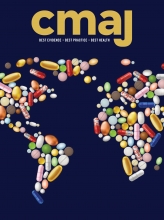
There’s a bench near the train stop by my house where a man often sits. On days when he seems to be in a good mood, he uses a dinosaur hand puppet to say hello, and maybe ask for food or money. He’s thin and permanently sunburned, and the lines around his otherwise young-looking eyes suggest he’s been around the block a few times. Today when I passed there was no puppet. Instead, he was hunched over, elbows on knees, with a woman shouting in his face: You have made yourself into what you are. Grow up!
As a former evolutionary biologist, an adopted child and now a mother of biological children, I have long been fascinated by the question of nature versus nurture. The biologist in me says nature is the heavy-hitter. As a child removed from the care of a mother with schizophrenia, my hunch is that environment and choice have more to do with who you become than simply what your genes bequeath. As a mother, I am quite sure most days that my three children, all so different from one another, came into the world as fully formed human beings, and that my role is simply to feed them and ward off sabre-toothed tigers.
As a doctor, I have mostly set aside the debate. If you have depression, it’s likely because whatever quantum of stress you have (emotional, physiological, existential) outstrips your resilience. I can do a safety screen, talk to you about mindfulness and exercise, and maybe add in some meds. Whether your depression is 20% genetic or 50% environmental doesn’t really matter when you just want help feeling better.
Yet there’s more and more reason to think it does matter. Research in epigenetics and inflammation is beginning to support the idea of intergenerational trauma that Indigenous leaders have talked about for decades: things that happened to your parents can influence your physiological markers, if not health outcomes directly.
This has me reading about trauma-informed care. It’s usually described in the context of psychological therapy and social work, but there are lessons here for medicine. A central belief is that people can become more resilient and get better. It may sound silly to say that — if we didn’t think people could get better, why would we bother treating? But we sometimes label patients in ways that suggest they will always be “who they are.” Think of personality disorders. Think of hypochondriasis. Is it once-a-malingerer-always-a-malingerer, or do people ask for help using our common flawed language and not quite get at what they mean because of our limits of understanding?
The other day I saw a patient who is fairly new to me. She fits the “difficult patient” bill to a tee: glaring, she presented me with a list of things she instructed me to do for her in the 15 minutes I had with her, including reversing many of the plans we had negotiated last visit. I left the room reeling with what I suppose was countertransference.
This is when the reading about trauma-informed care comes in handy. Another of its central tenets is that people who have been hurt have learned not to trust, even doctors. Maybe especially doctors. That to offer help, I have to be aware of my own beliefs about recovery. That I must be aware of my own vulnerabilities in order to hear patients and ultimately help them. That to admit trauma into the examining room means sharing its burden. That it will come with a cost. That it might hurt me, and ultimately turn me away.
Reading a few papers about trauma-informed care certainly doesn’t qualify me as a practitioner of same, but it does give me a beautiful question to use. Instead of asking what’s wrong with a patient, I can ask what happened to her. My “difficult patient” has learned behaviours that have helped her survive, even though — probably because — they push the buttons of people who hold power. My job is to see the bigger picture and not to take it personally.
She and I and all of us have to take responsibility for our actions. But we have all been changed by something. We have all been marked. Sometimes it has left scars.
I will never know what prompted that woman to scream at the man on the bench. Let’s just say I have my doubts about the effectiveness of her intervention. I’ll try to remember that when I show up at work.
Dr. Monica Kidd has written two novels and three volumes of poetry; she’s followed seabirds from Newfoundland and Labrador to the Antarctic. She worked her way up to being the CBC’s national science journalist, and then went to medical school. These days, she’s a mother and family doctor in Calgary. She’s never stopped writing. If you’re curious about her unusual career, you can read a profile about Kidd in the Jan. 9, 2017, issue. We hope you enjoy Coda and, as always, we welcome your feedback.











